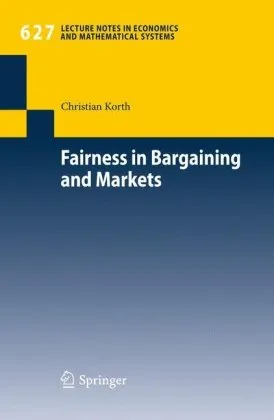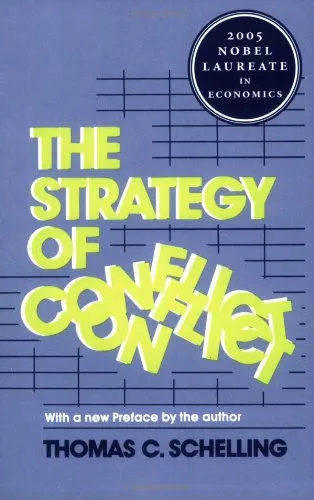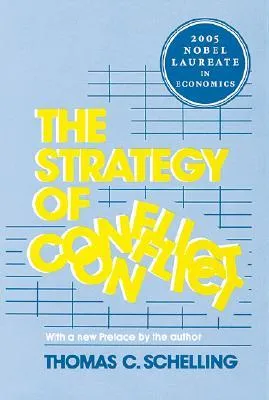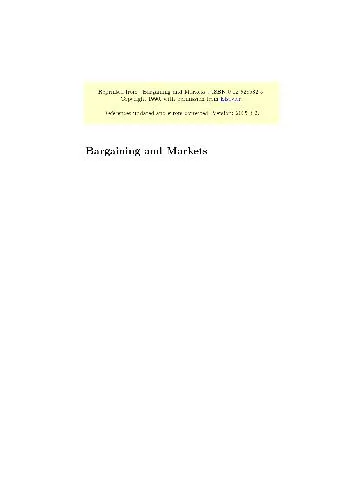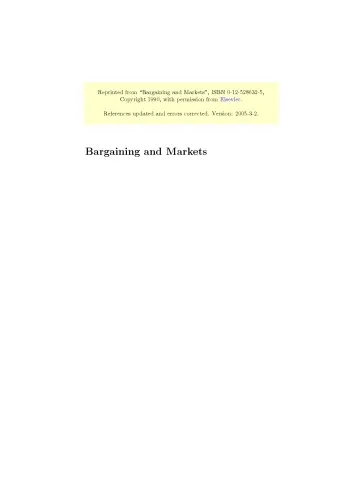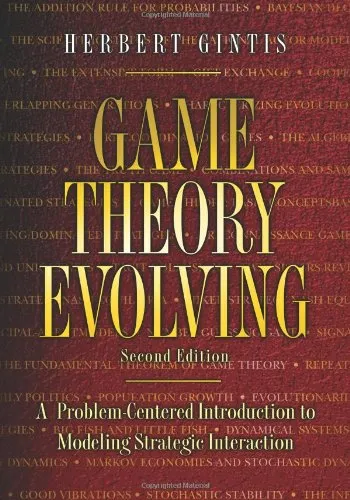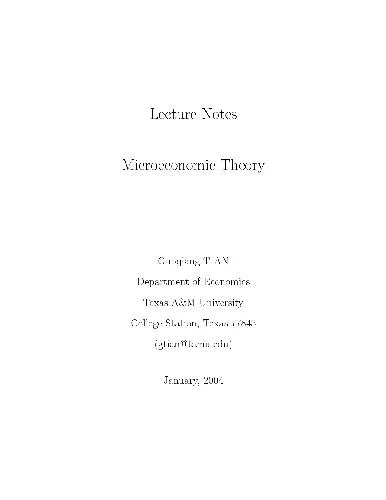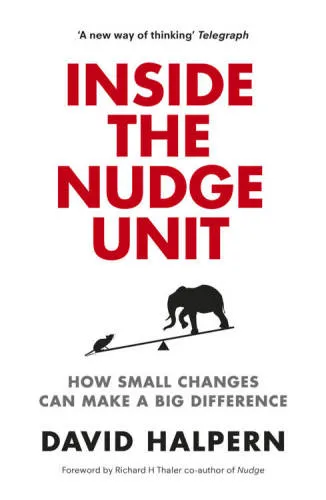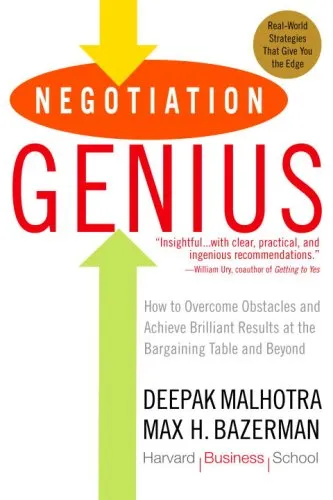Fairness in Bargaining and Markets
4.5
Reviews from our users

You Can Ask your questions from this book's AI after Login
Each download or ask from book AI costs 2 points. To earn more free points, please visit the Points Guide Page and complete some valuable actions.کتاب های مرتبط:
Introduction
In the intricate world of economics, the notions of fairness in bargaining and markets have been pivotal yet contentious subjects. "Fairness in Bargaining and Markets" is a profound exploration of these concepts, meticulously dissected to illuminate their implications in the modern economic framework.
Detailed Summary of the Book
In "Fairness in Bargaining and Markets," I delve into the intricate webs woven by the interplay of fairness and economic negotiations. This book presents a comprehensive examination of how fairness perceptions influence bargaining outcomes and market behaviors. It offers a theoretical as well as an empirical lens through which readers can explore fairness, drawing from historical contexts and contemporary case studies.
The narrative traverses several fundamental theories in economics, presenting arguments from renowned economists and philosophers pertaining to equitable distribution and negotiation ethics. Each chapter builds on an interconnected framework that examines how fairness impacts decision-making and economic justice, challenging traditional economic paradigms while offering new perspectives.
The book takes readers through real-world scenarios where fairness perceptions play a critical role, providing insights into how they can alter bargaining outcomes. It scrutinizes fairness in labor negotiations, consumer markets, and financial transactions, showcasing varied impacts across different economic sectors.
Key Takeaways
- The concept of fairness is integral to understanding and interpreting bargaining behavior and market dynamics.
- There is a stark difference in how fairness is perceived among different individuals and cultures, which impacts their economic decisions.
- Traditional economic models may overlook the nuances of fairness, often leading to suboptimal outcomes in real-world applications.
- Fairness and equity should be incorporated into economic policy-making to enhance societal welfare and economic justice.
Famous Quotes from the Book
“Fairness is not merely an ideal; it is a lens through which the complexities of human interaction in economic settings can be better understood.”
“To negotiate without fairness is like playing a game without adherence to its rules; the outcomes may favor some but at the cost of integrity and sustainability.”
Why This Book Matters
In today's globally interconnected economy, fairness remains a cornerstone for policy-makers, economists, and negotiators. "Fairness in Bargaining and Markets" is not just an academic treatise but a call to action, urging readers to rethink established norms and foster more equitable economic environments.
This book provides invaluable insights for scholars and practitioners aiming to bridge the gap between economic theory and the ethos of fairness. Given the increasing socio-economic disparities, understanding and implementing fairness in economic decisions is crucial for achieving long-term stability and prosperity. It cultivates a deeper appreciation of fairness as a strategic tool that can drive innovation and trust in both markets and society at large.
Free Direct Download
You Can Download this book after Login
Accessing books through legal platforms and public libraries not only supports the rights of authors and publishers but also contributes to the sustainability of reading culture. Before downloading, please take a moment to consider these options.
Find this book on other platforms:
WorldCat helps you find books in libraries worldwide.
See ratings, reviews, and discussions on Goodreads.
Find and buy rare or used books on AbeBooks.
1274
بازدید4.5
امتیاز50
نظر98%
رضایتReviews:
4.5
Based on 0 users review
"کیفیت چاپ عالی بود، خیلی راضیام"
Questions & Answers
Ask questions about this book or help others by answering
No questions yet. Be the first to ask!
